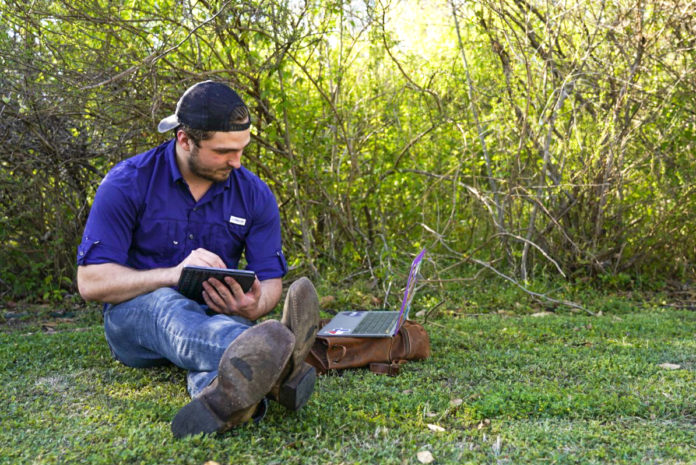By Caitlin Erramouspe | Reporter
The work environment has changed since COVID-19 hit in March 2020. For months, the only option was to work from home at the kitchen table. Now, with more light at the end of the tunnel, some people are making the decision to return to work in person, while others are deciding to stay at home.
Working remotely has its pros and cons. Millions of Americans and soon-to-be college graduates are figuring out the best option for them.
According to a Pew Research Center survey conducted last October, 71% of Americans were working from home. With only 15.8% of the population fully vaccinated, according to the CDC, remote work can also be a safer option for many.
Companies are noticing an increase of productivity while working at home, according to Jarrod Mathis, a career success professional at the Baylor Career Center. He said he has seen positive growth in his department.
“We learned to work with each other in new ways because there were new challenges. And those challenges I think woke us up or invigorated us in new ways. And I think we were the most collaborative and the most effective in our jobs than we’ve ever been,” Mathis said.
Companies are also able to save money by not having employees in the office.
“Many companies have found that employees can be just as productive from a home office and it cuts down on overhead costs,” Shelby Cefaratti-Bertin, the marketing communications coordinator at the Career Center, said.
In the same Pew Research Center survey, it was discovered that in the 18 to 49 age range, 42% of people have said they have had a difficult time staying motivated while working from home.
Motivation is just one of the many cons to working remotely. Some employers have required longer work hours, causing many employees to have a harder time keeping a balance between work and life.
For seniors, making the decision between remote work and in-person work can be difficult.
“As someone thinks about a job and is given the opportunity to be remote or be in person, I think one of the things to think about is how you spend your first 90 days,” Mathis said. “Those first few weeks on a job are crucial to building a reputation, gaining knowledge and making connections, and it will be harder virtually.”
Aurora, Colo., senior Drew McDougal said the best option for him is to work in-person.
“I want the support system that comes with an in person job, and I want to be involved in the company’s culture. Remote work doesn’t allow that,” McDougal said.
Remote work will most likely continue to be an option as America continues to battle COVID-19. But many have found a hybrid work schedule to be the most ideal — a few days in person and a few days from home.
“I think three days in the office and two days out of the office would be ideal,” McDougal said.
As seniors make the decision between remote work or in-person work, Cefaratti-Bertin recommends using the tools at the Career Center to help. Some resources include meeting one-on-one with a career success professional, using Handshake, booking an interview room or doing mock interviews.
“There are pros and cons of working remotely, and it will not be the best decision for everyone,” Cefaratti-Bertin said.






